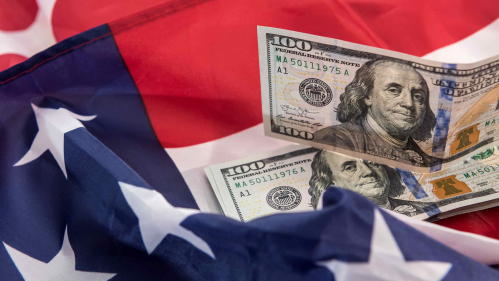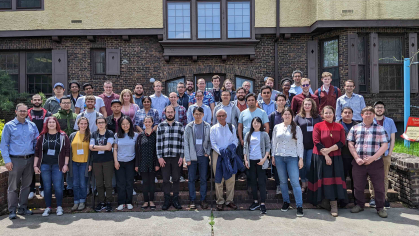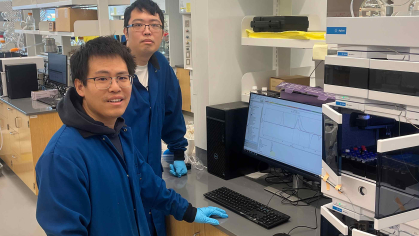New Jerseyans Are Still Negative on the State and (Especially) National Economy

Half or more say they have difficulty affording basic necessities such as mortgage, rent, health care, utilities and groceries
New Jerseyans continue to give lackluster ratings to both the state and national economy, with a sizeable number who say they are financially falling behind and half or more are having difficulty with basic household costs, according to the latest Rutgers-Eagleton Poll.
“New Jerseyans are far from optimistic when it comes to current finances – whether it’s the state economy, the national outlook, or their own personal situation,” said Ashley Koning, an assistant research professor and director of the Eagleton Center for Public Interest Polling at Rutgers University-New Brunswick. “While residents still rate New Jersey’s economy somewhat better than the country’s, many feel financial strain in their daily lives, including when it comes to affording basic needs.”
Nearly eight in 10 New Jerseyans give a negative rating to the condition of the national economy – 36% describe it as “poor” and 42% say “only fair;” 17% say “good” and 2% say “excellent.” There has been little change in perceptions since residents were asked about this in the spring after a notable drop from fall 2024 results. Republicans are much more likely to say “good” than independents or Democrats and much less likely than either of these groups to provide a negative outlook.
Fifty-five percent say the nation’s economy has gotten worse in the past year, while 21% say it has gotten better. A similar number (20%) say it is about the same as it was a year ago. Those who say “worse” have increased slightly since last fall. Partisan differences again emerge, with Republicans much more likely to see improvement over time than independents or especially Democrats – who, followed by independents, are more likely than Republicans to say the economy is getting worse.
Residents are slightly more positive about New Jersey’s economy, though still largely negative overall and showing some decline in positivity since April: 24% rate it as “poor,” 46% “only fair” (up 9 points) 24% “good” (down 7 points), and 2% “excellent.” In this case, Democrats are more likely than independents and especially Republicans to say "good," and much less likely than either group to say “poor.”
Slightly more than half think New Jersey’s economy is about the same as it was a year ago (51%); 35% say it has gotten worse over the past year and 7% say it has gotten better. While those who say the state economy has gotten better has declined since fall 2024, residents are a few points less likely nowadays to say it has gotten worse. Instead, the most notable increase has been among those who say it has remained unchanged. Republicans are more likely than Democrats or independents to say the economy is getting “worse” statewide, while Democrats are most likely to say it has remained unchanged.
Regarding their personal finances, 49% say they are “holding steady financially,” 44% say they are “falling behind,” and 6% say they are “getting ahead.” Those who say they are “getting ahead” has declined by 5 points since fall 2024. Residents in households making less than $50,000 annually are the most likely to say they are “falling behind.”
More than half say they are doing “about the same financially” as they were a year ago (56%), a third say they are “worse off” now than a year ago (34%) and about 1 in 10 say they are “better off” (9%). Republicans are more likely than Democrats or independents to say they are “better off,” while Democrats are more likely than independents and Republicans to say they are “about the same.” Again, income plays a role: Those in households making less than $50,000 annually are less likely in higher income brackets to say they are “about the same” and more likely than their counterparts to say they are “worse off.”
Given whatever their current financial situation may be, half or more of New Jerseyans find it difficult at some level to afford a variety of basic costs. More than half of residents say they find it “very” or “somewhat” difficult to afford rent or mortgage payments (23% “very,” 32% “somewhat”) and groceries and other food (16% “very,” 39% “somewhat”), and health care and medical costs (19% “very,” 33% “somewhat”). Half have some level of difficulty affording utility bills (17% “very,” 33% “somewhat”). Among those to which it was applicable, about six in 10 say they find it difficult at some level to afford education costs, including student loans (25% “very,” 37% “somewhat”).
More than a third find it difficult to afford gasoline or other transportation costs (10% “very,” 25% “somewhat”).
“There are consistent disparities on how difficult it is to afford these basic costs by race and ethnicity, as well as income,” said David Martin, a research associate at the Eagleton Center. “On many of these items, nonwhite residents find it more difficult than white residents to do so, as do those in the lowest income bracket compared to those in households making more. The only partisan difference we see is on student loans, where Democrats and independents are about twice as likely as Republicans to say affording education costs is ‘very difficult’ for them.”
Results are from a statewide poll of 621 adults contacted through the probability-based Rutgers-Eagleton/SSRS Garden State Panel from June 13 to June 16. The full sample has a margin of error of +/- 5.4 percentage points.


